3D printing has become an increasingly popular hobby and technology. Many people use this technology to print toys, models, and other items. However, some people use it to make musical instruments. If you’re interested in learning how to make some 3D printed musical instruments, here are some examples of what you can build and what you’ll need to get started.
It’s easy to build functional instruments with 3D designs. You just need a few things: A computer with an open source software program such as Blender or Cura; An affordable printer; 3D Filament, and a bit of time. (If you’re just getting started, check out our elementary guide to 3D printing.)
Ocarina
The ocarina, a small wind instrument traditionally made from clay, has been in use for thousands of years. Invented in Mesoamerica as a ceremonial instrument, the ocarina has gained popularity in modern culture, especially among fans of the Legend of Zelda video game series.
3D printed ocarinas are being created in all shapes and sizes, and for all skill levels. Thanks to the 3D printed ocarina’s small size and light weight, you can take your instrument with you wherever you go.
We printed a 12 hole ocarina
Play the video to hear how it sounds:
Pan Flute

This pan flute plays like a whistle, where you play blowing directly into the tubes. It is designed to have a diatonic scale with notes ranging from CDEFGABC. Here’s a slightly different design of a whistle pan flute.
This is a more traditional model, where you play by blowing across the top of the tubes; just as you would blow over an empty bottle. It’s designed with a 2 octave pentatonic scale.
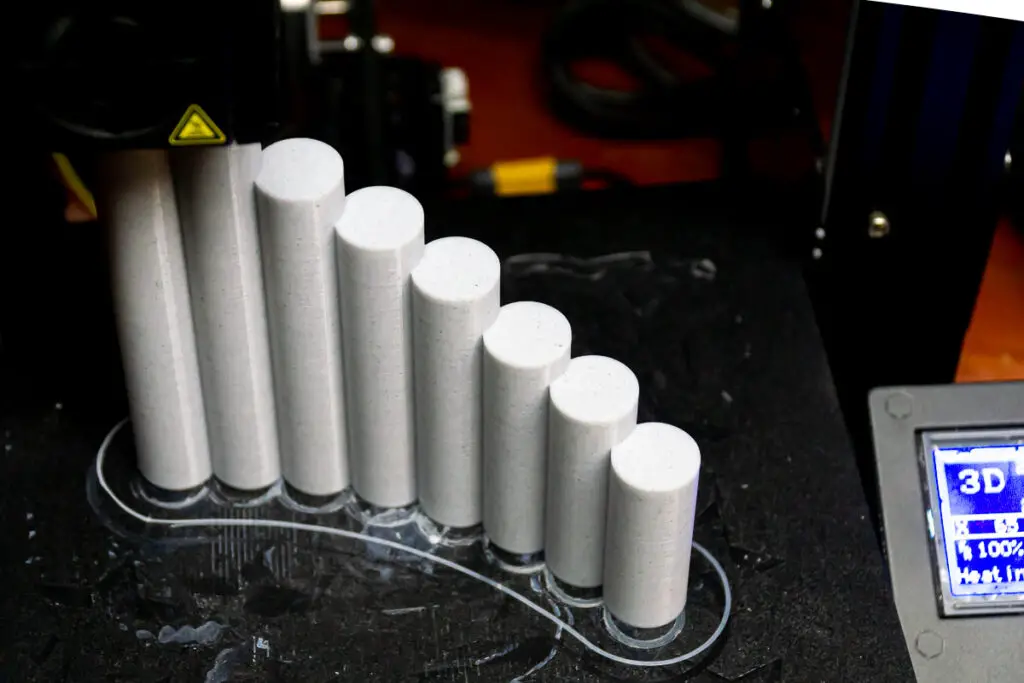
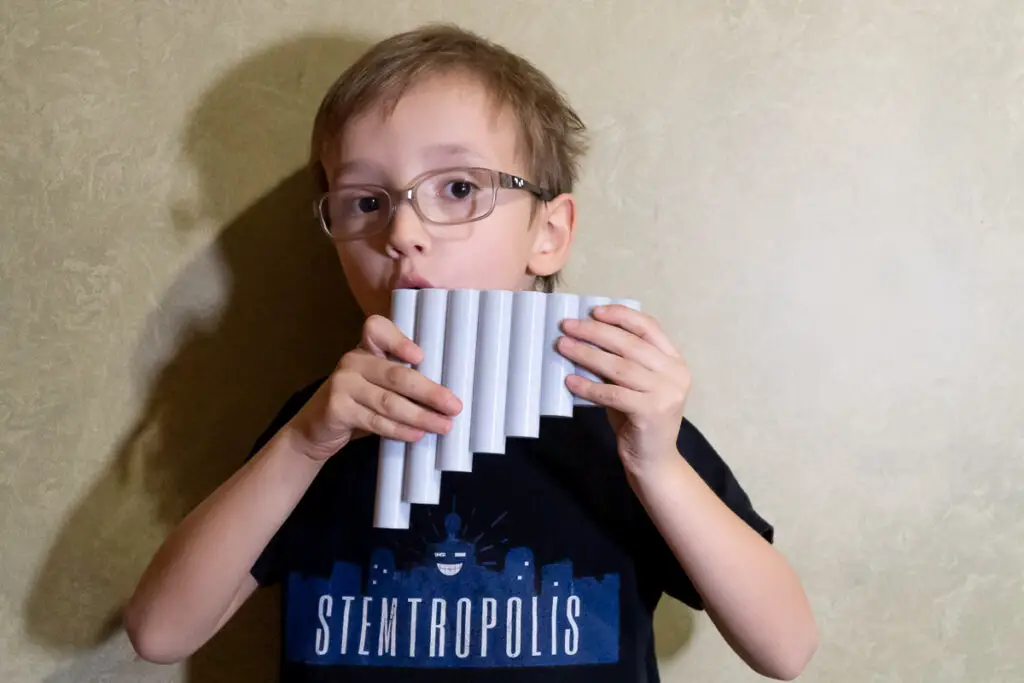
Kazoo
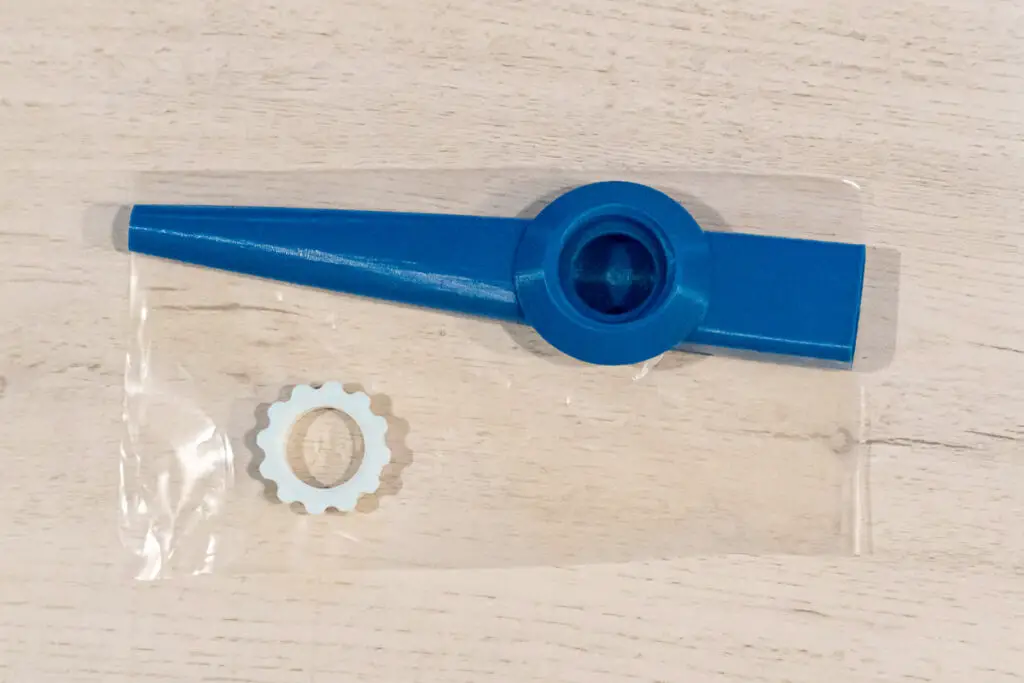
The kazoo is another instrument that’s great for kids. It’s basically a tube and a reed to make the sound. The kazoo is another easy 3D print. We chose this one from Thingiverse
The kazoo does need a reed to vibrate and make the sound. You can use a small piece of cellophane. We cut a small piece from a business envelope window that worked nicely.
Death Whistle
Okay, so the death whistle is more of a “sound effect” than an instrument. I couldn’t imagine trying to play a tune on one of these, but they’re fun. It’s an ancient concept using 2 chambers in the design. When blowing air through the whistle, it makes a pretty horrific scream like sound (it definitely scared the kids. Our cats weren’t too fond of it either.)
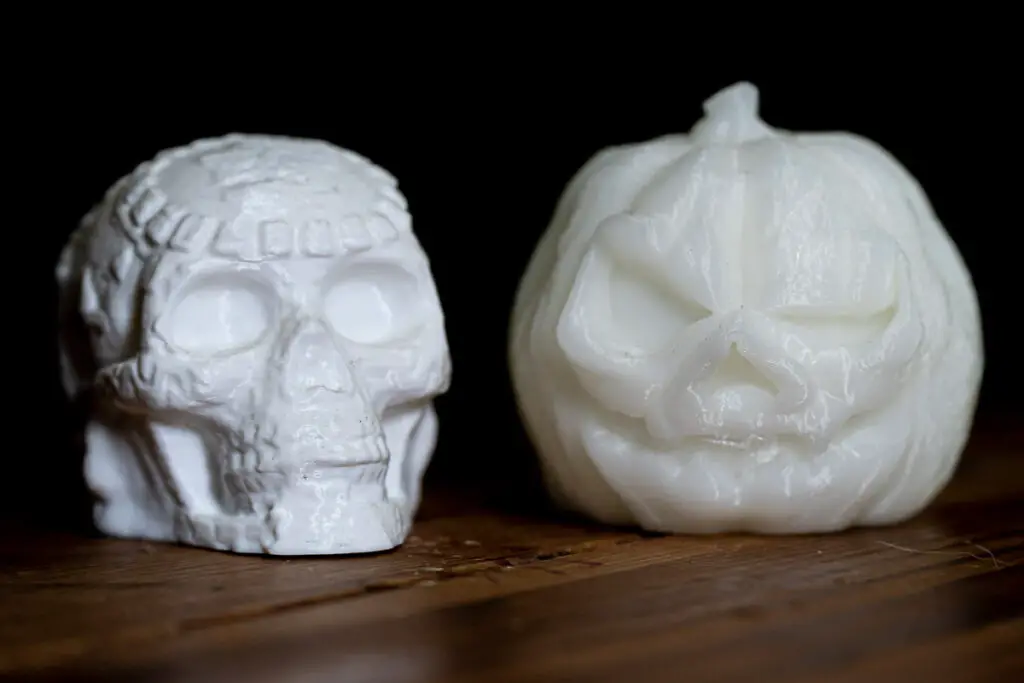
The eerie sound effects produced by this unique instrument can bring an extra layer of spookiness to your Halloween celebrations or be used in horror films.
Here’s a more ‘traditional’ skull shaped death whistle.
We also like this jackolantern Halloween themed one you can see in the above photo (which we printed it in a glow in the dark filament.)
Recorder
The recorder is a classic flute-like instrument that has been around for centuries, and is often selected as a starter instrument fork kids because of its simplicity. This also makes the recorder a great place to start 3D printing. Here are a few models to try:
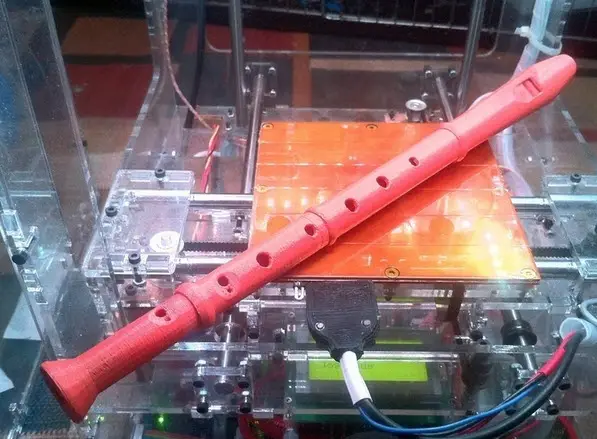
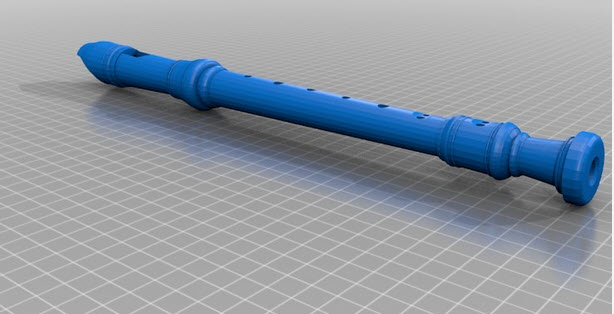
This dragon recorder is pretty cool too, and only has 3 parts to print and assemble.
Flute
With 3D printing, you can now create custom flutes in a variety of shapes and sizes that weren’t possible before. We couldn’t resist this Darth Vader themed one.
Flutes are usually best printed vertically (i.e. standing on one end) to avoid the need for internal supports, which makes them easier to assemble after printing.
This square flute is designed for an easy print for even the most basic 3D printer. It’s simple and effective.
Horn
The horn is another wind instrument that lends itself to 3D printing in different shapes and sizes. This free 3D model is a great horn to start with. While 3D printed plastic won’t have the same tone quality as brass instruments, it’s still going to give you a distinctive horn sound.
If you want a horn with a bit more versatility without a complex build, try this piccolo trombone.
Violin
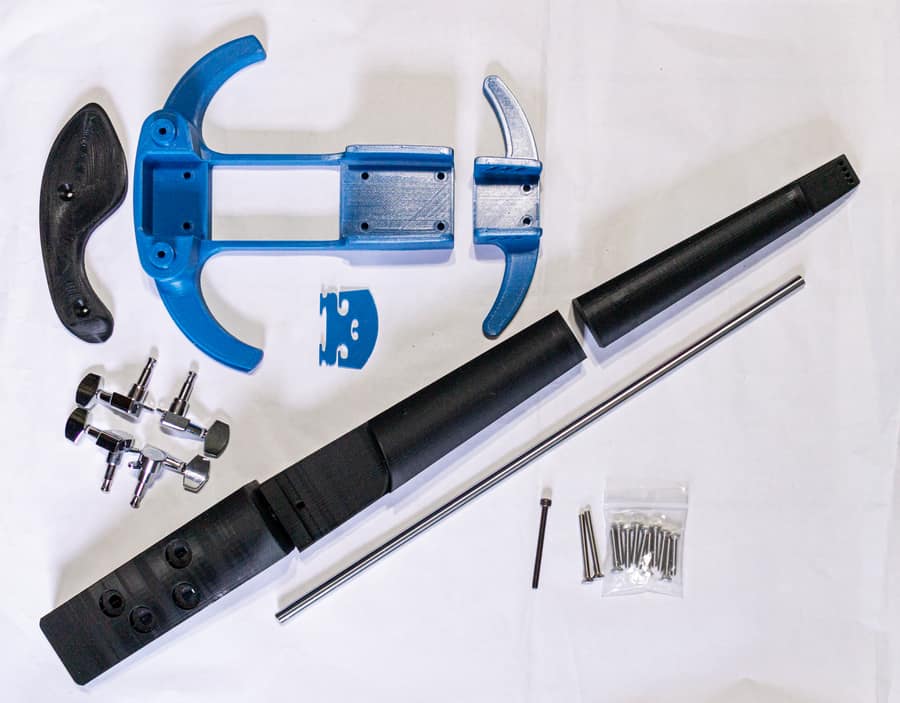
There are a number of free 3D violin models available. Some are more traditional instruments, while others feature some innovative designs. We evaluated a bunch of violin designs and were amazed at the variety of both acoustic and electric instruments.
We ultimately chose an electric violin and documented the print and build. You can follow the process and check out the results in our post here: How to 3D print a Violin.
Electric Guitar
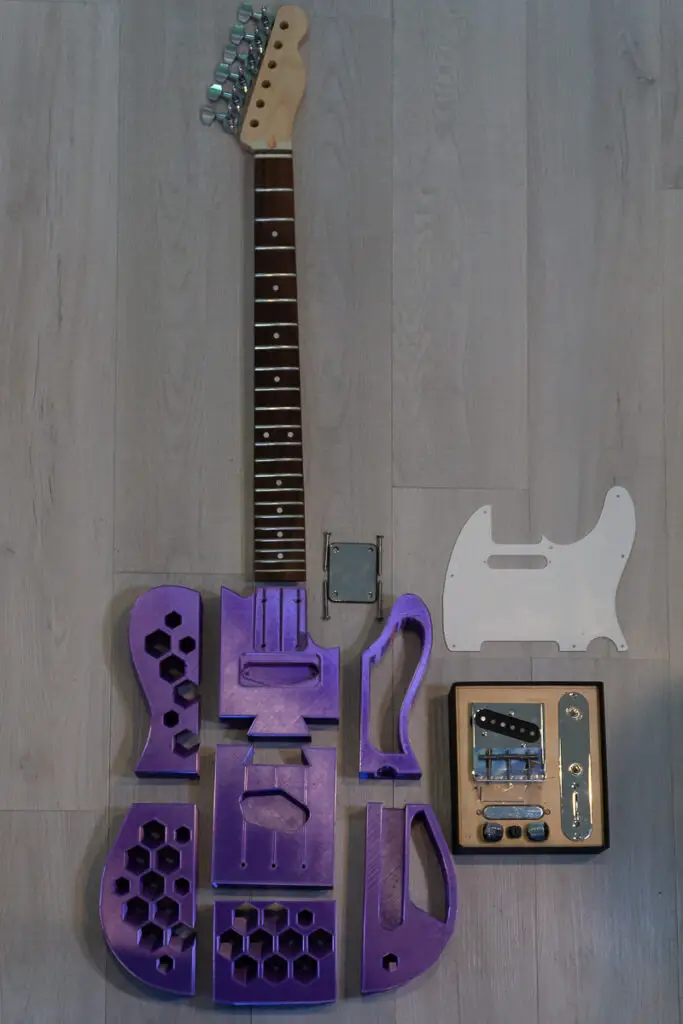
The electric guitar has been one of the most popular musical instruments since its inception. There is something that draws people to its sound, and the fact that it can be used to create a wide range of sounds and styles.
With the introduction of 3D printing, electronic instruments have become even more accessible to everyone. You can now design your own instrument or modify existing designs with the help of 3D printing projects.
We printed this Fender telecaster shaped model. Since a guitar body is bigger than our Ender 3 printer can fit on the bed, the model is already sliced into smaller pieces. You can check out our full build in our post on how to 3D print a guitar.
Here’s a link to the guitar model we used as well as a 3D printed pick guard.
Can you 3D print a guitar neck?
You can 3D print a guitar neck, though you’ll definitely need a truss rod for support. You’ll also need to install metal frets in the neck. (Yes, you could build the frets into the model, though metal guitar strings would wear the frets down quickly.) It’d take a lot of additional effort and specialized equipment beyond your standard 3D printer, but it’s possible to print a guitar neck. The acoustic guitar below features a 3D printed neck:
Acoustic Guitar
Here’s a 3D printed acoustic guitar. Everything but the tuners (and strings) are 3D printed – even the neck! It’s a 3/4 scale, so smaller than a regular guitar, which makes it easier to print and great for small hands. I’ll also be a higher pitch much like a ukulele.
The designer mentioned that they did have a neck warp and suggests storing it with no tension on the strings. We’d recommend printing this with a high infill – especially the neck – for this reason.
Ukulele
The ukulele is a small four-stringed instrument that has been around for centuries, but its popularity has seen a huge resurgence in recent years thanks to its unique sound and accessibility.
If you’re looking to get started playing a string instrument, a ukulele is a great place to begin; it’s easy to learn compared to other string instruments. Even for experienced players, one finger jazz chords are kind of fun.
It’s small size makes it easier to print, since most of the parts can fit onto the print bed of home 3D printers without being sliced up into many smaller parts.
This model ukulele is sturdy and offers plenty of opportunity to print parts in different colors (check the view for different builds and you’ll see someone made an Eddie Van Halen inspired one! ) This one’s more compact and travels easy, tough doesn’t have a resonating chamber.
Percussion Frog
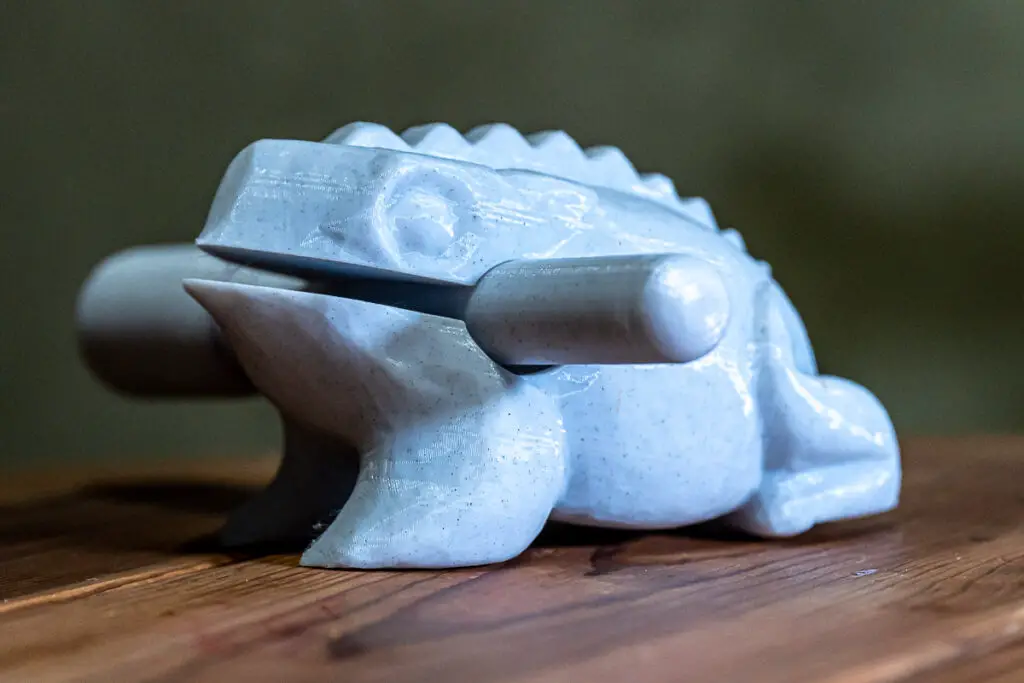
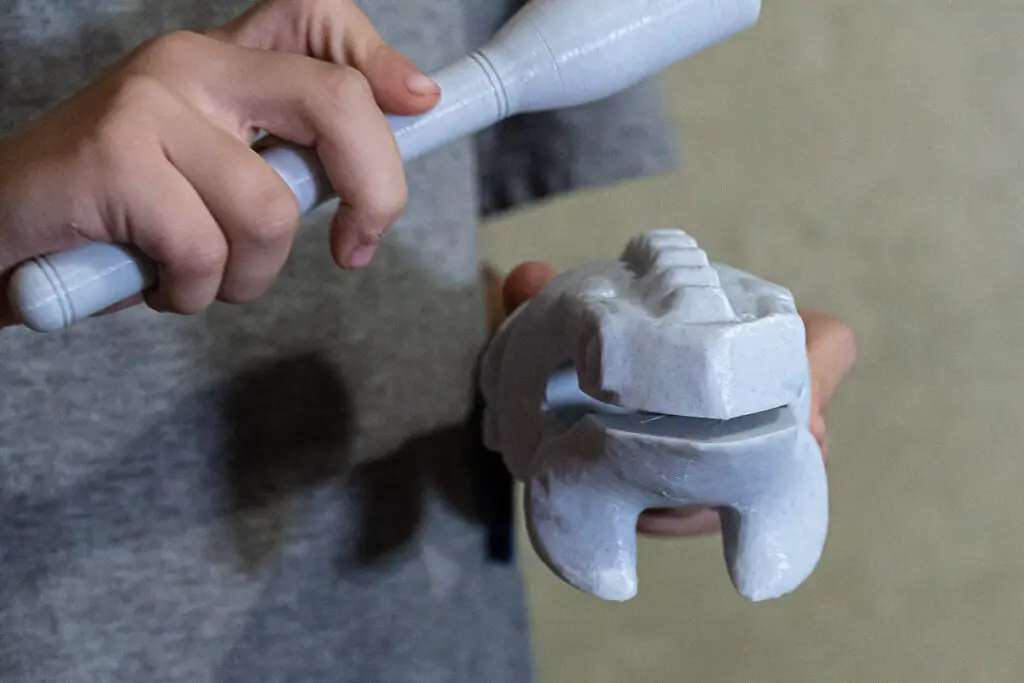
Percussion frogs (sometimes commonly referred to as wood frogs as they are traditionally carved from wood) play much like a guiro. The body of the frog is hollow, and acts as a resonance chamber when the ridges on the back are stroked with a stick.
The bigger the frog, the bigger lower the tone. This means you can change the tone of your frog by scaling the model up or down and changing the size of your frog.
We printed ours at the normal size without any scaling, and used a marble/stone colored PLA filament.
Download yours: Percussion frog and stick
We played it side by side with a wooden one. The wooden frog has a more resonant and full sound. The 3D printed one still sounds good and the kids are happy to play with it, and it looks good. And you can print one an any color you like, or print them in different sizes and make a musical scale.
Shaker
Shakers are a great component to any recording studio or jam session; you never know when you may need that extra bit of percussion rhythm to glue the sound together. There are a variety of shaker instruments you can find at your local music shop or online. We’ve made some DIY shakers using plastic water bottles and cardboard tubes.
You can also 3D print your own shaker.
Castanets
These small handheld percussion instruments are traditionally made from wood and are used to create a clicking sound. Castanets provide a unique sound that can be heard in traditional Spanish folk music, flamenco, and more.
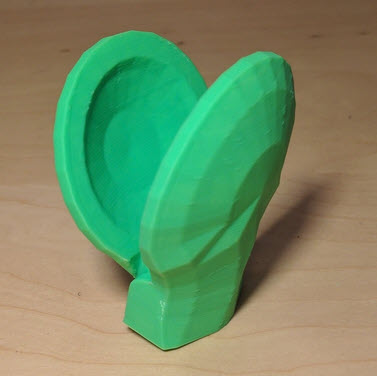
Castanets are another percussion instrument you can 3D print.
Buka Drum
We love this hand drum! It’s small (14cm tall) and portable. It’s one piece with no intricate shapes, so it can print without supports or rafts. It’s designed to be printed upside down.
Use a fun color and print one for your next jam session. Print one for the whole family or band and have a drum circle. Combine with some other 3D printed percussion and make your own rhythm section.
Jinghu (Chinese Bowed Instrument)

The Jinghu is a traditional Chinese instrument that features a distinctive two-string configuration and is bowed like a violin. All components of this design, including the tuning pegs, are fabricated through 3D printing.
In terms of the printing process, you have the option of producing the entire shaft in one go, or alternatively, dividing it into three pieces if you are using a smaller printer.
This is a pretty simple project and can be printed with no supports. The body will be under tension from the strings (you can use violin strings), so you’ll want a denser infill that you’d use with most 3D prints.
For optimal results, the designer recommends a 30-50% infill for the body and tuners, a minimum of 50% infill for the shaft, and a 100% infill for the bridge.
You can use a regular violin bow to play your Jinghu.
Nerdy Gurdy (3D Printed Hurdy Gurdy)
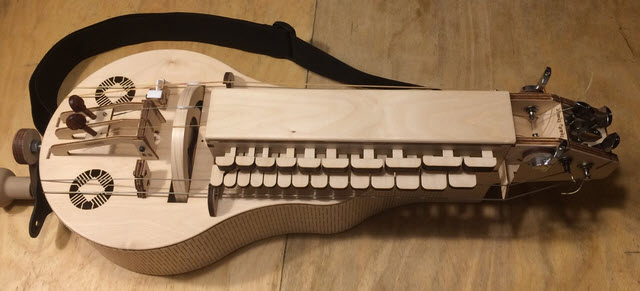
The hurdy gurdy is a centuries old instrument with lots of moving parts. They’re rather complicated instruments with mechanical components. This 3D printed version is a complex design you can use for a DIY build.
This is a neat project. For more details or to hear how this sounds, check out the nerdy gurdy webpage. I can’t believe this thing is a 3D printed instrument!
3D Printed Wind Chimes
If you want a 3D printed instrument but have no musical talent, that’s okay. You can print some windchimes and let nature do the work. They’re not as melodious as tuned metal windchimes, but it’s a fun project to work on. (You can compare them to some tin can windchimes and see which you think sounds better.)
Do 3D printed instruments sound good?
It’s great to know that you can print musical instruments, but how good are they. How well do they play, and how do they sound? Can an instrument printed from a spool of plastic sound as good as a regular musical instrument?
When compared side by side with their acoustic counterparts, the tone and overall sound quality of 3D printed instruments aren’t as good as their traditional counterparts – at least to our ears. That said, they can still produce some impressive sounds.
And with the electronic 3D instruments, the electronics and amps constitute a large part of the sound quality. If I was still touring or gigging regularly, I’d have no hesitation taking these onstage.
With a little bit of creativity and experimentation, there are plenty of ways to make use of 3D printed instruments in performances, recordings, or music lessons. Whether you’re a seasoned musician or just getting started on your musical journey, 3D printed instruments offer an exciting way to explore sound.
Wrap Up – Create Your Own 3D Printed Musical Instruments
3D printing has become very popular among musicians. There are many types of instruments that can be printed using this technology. If you want to try your hand at creating an instrument, here are some tips on how to go about doing so.
1) Choose a design that you would like to print (start with some of the free 3D models we’ve linked to.)
2) Find a 3D printer that suits your needs.
3) Print the design.
4) Play around with the design until you’re happy with it.
5) Make sure that the design is sturdy enough to withstand the rigors of playing.
3D printing has revolutionized how we make music – it’s like it’s opened up an entirely new world of music-making possibilities. From simpler instruments like flutes to recorders to kazoos to more complex builds like full size guitars – if you can imagine it, you can create it with 3D printing technology. Get creative and start building; who knows what musical wonders you might discover?
Pin it!
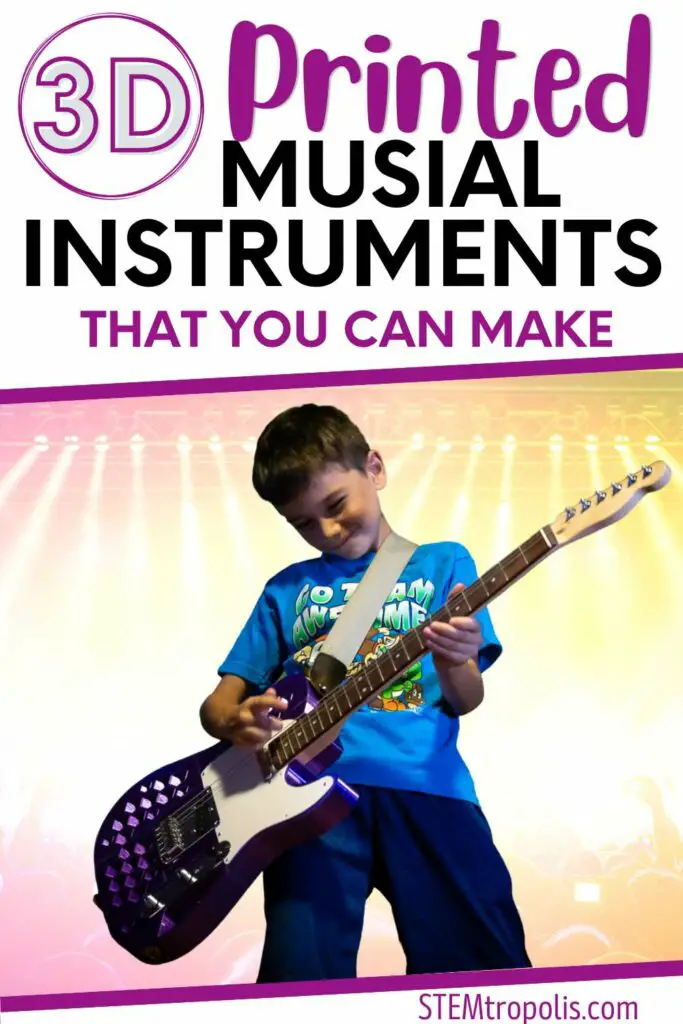

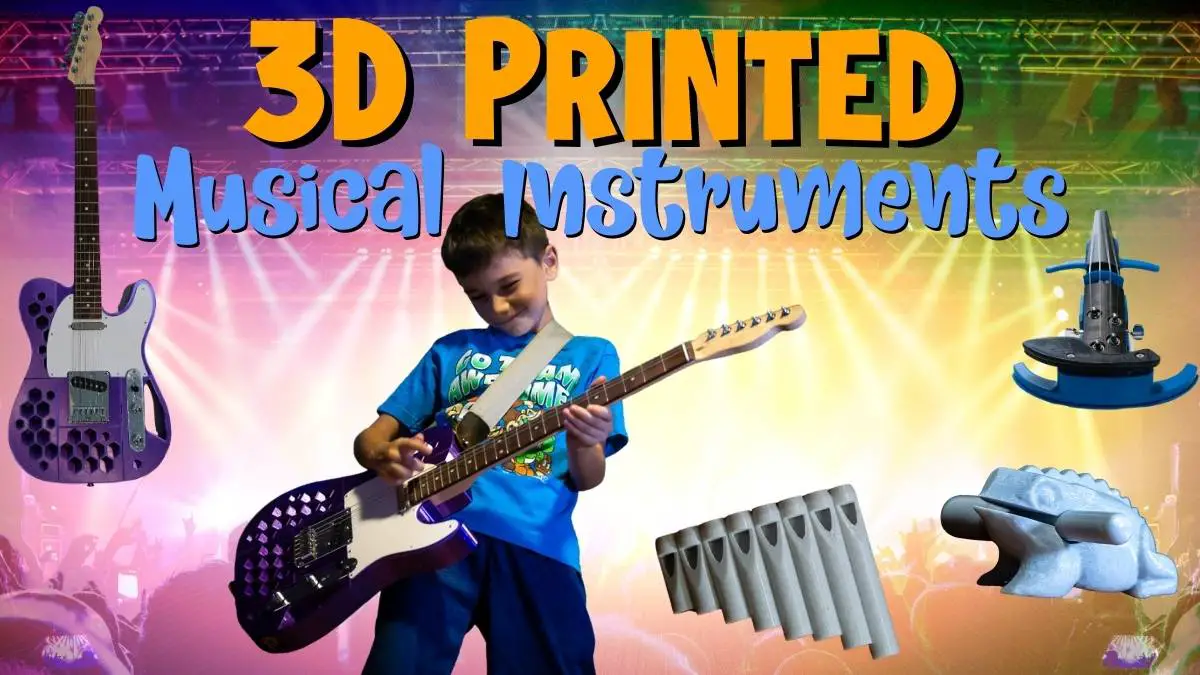

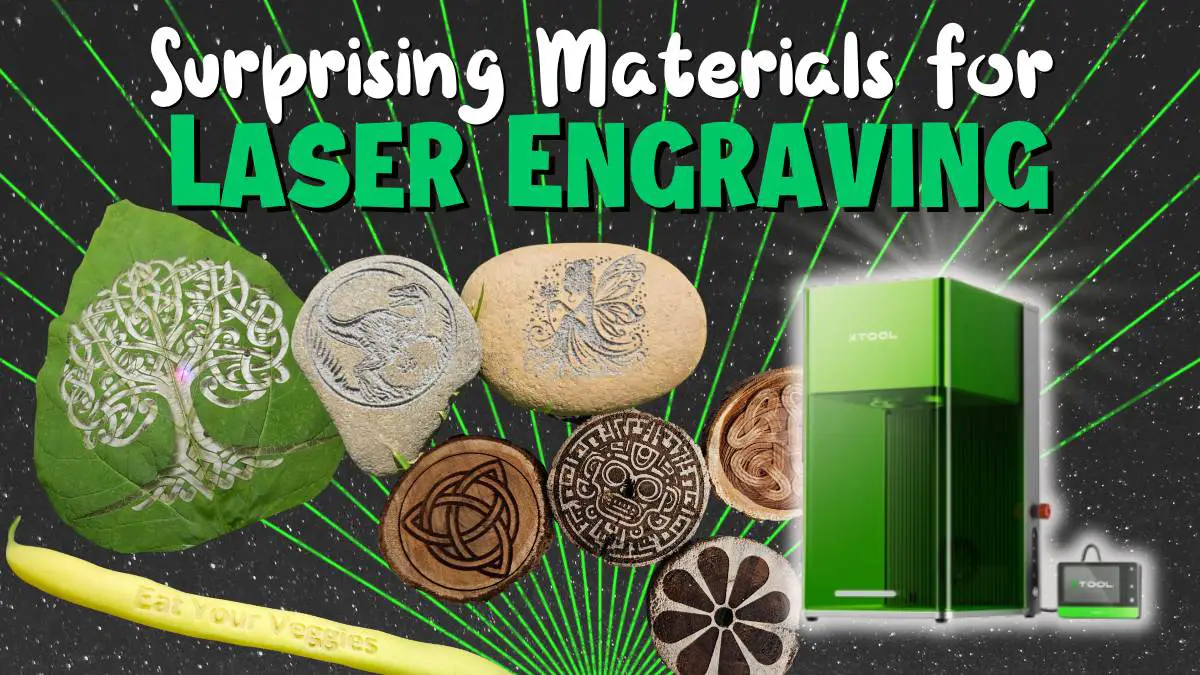

One response to “Awesome 3D Printed Musical Instruments (With Free 3D Models)”
Your blog is a constant source of inspiration.